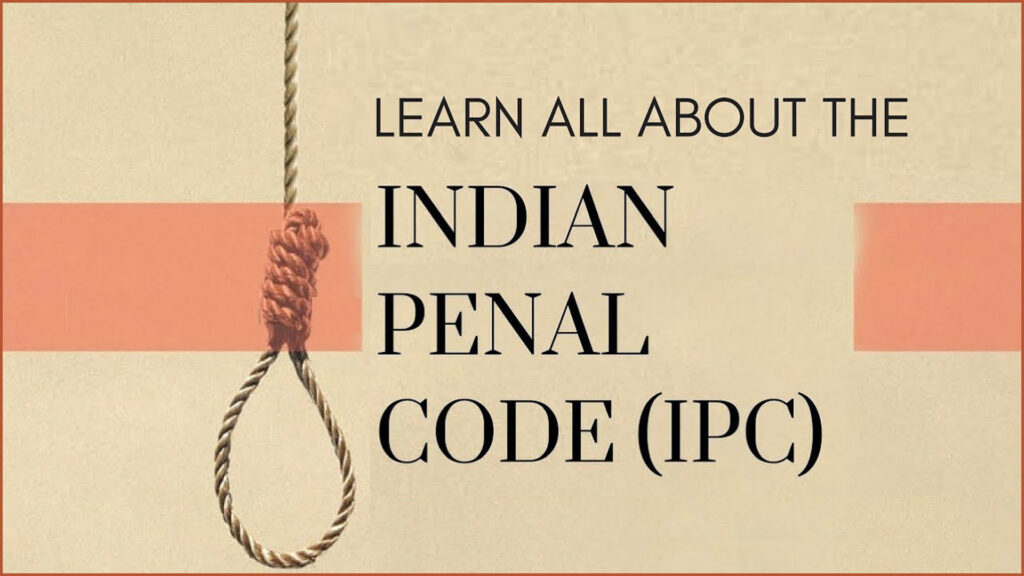Understanding the Indian Penal Code (IPCs) 1860

Indian Penal Code
The Indian Penal Code (IPCs ) of 1860 stands as the cornerstone of the Indian legal system, shaping the country's criminal justice framework for over a century and a half. Enacted during British rule in India.
It continues to serve as the primary criminal code, embodying a rich amalgamation of principles and provisions that address various offenses and their repercussions.
The Indian Penal Code genesis dates back to the colonial era, during Lord Thomas Babington Macaulay's tenure, wherein the British administration felt the need for a comprehensive legal document to govern the diverse Indian society.
The code amalgamated diverse customary laws and sought to bring about a uniform, standardized legal framework. While its roots lay in British jurisprudence, it was shaped by inputs from various cultural, religious, and social aspects of Indian society.
The Indian Penal Code comprises several chapters, classifying crimes under different heads and prescribing penalties for the same.
It addresses offenses ranging from violent crimes like murder and assault to property-related offenses like theft and fraud. Moreover, it covers public order crimes, including defamation, obscenity, and those against the state.
One of the critical elements of THE INDIAN PENAL CODE is the classification of offenses into cognizable and non-cognizable, bailable and non-bailable, compoundable and non-compoundable, providing guidelines for the legal process and the handling of cases.

Relevance and Contemporary Application
Despite being a product of the 19th century, THE INDIAN PENAL CODE remains highly relevant in contemporary India. It has adapted to societal changes and evolving jurisprudence through several amendments over the years.
The code's adaptability is evident in its incorporation of new offenses, considerations of technological advancements, and attempts to accommodate modern societal challenges.
Criticisms and Challenges
However, THE INDIAN PENAL CODE isn’t immune to criticisms and challenges. Critics often point to the code's rigidity in some provisions, which may not align entirely with present-day societal norms and values.
The complexity of legal procedures and the lengthy trials are also significant concerns. Additionally, there are debates around the criminalization of certain activities that might be considered outdated or overly stringent.

Evolving Perspectives and Future Reforms
In light of these criticisms and the changing landscape of crime and justice, there have been discussions about amending and reforming THE INDIAN PENAL CODE.
The Indian government and legal experts are actively considering revisions to ensure that the code remains relevant, equitable, and just in the face of evolving societal standards.
The Indian Penal Code of 1860 is not just a legal document but a reflection of a society's aspirations, values, and norms. Over the years, it has stood the test of time, providing a fundamental framework for justice in India. While it has its imperfections and areas that necessitate reformation, the THE INDIAN PENAL CODE remains a pillar of the Indian legal system, guiding the nation in administering justice.
The enduring relevance and adaptability of the THE INDIAN PENAL CODE showcase its resilience and potential for further evolution to meet the contemporary and future needs of justice and legality in India.

The Indian Penal Code sections
Section 299 – Definition of 'Culpable Homicide' and 'Murder'
Section 299 defines ‘Culpable Homicide' as the act of causing death with the intention of causing death, or with the intention of causing a bodily injury that the assailant knows is likely to cause death.
‘Murder' is described in Section 300, which encompasses culpable homicide that's committed under specific circumstances and with particular intents. These sections form the cornerstone of determining the severity of an offense based on intent and circumstances.
Section 377 – Criminalizing Unnatural Offenses
Section 377, a highly debated provision, criminalizes unnatural sexual acts. Historically, it was used to criminalize homosexual activities.
However, a landmark judgment in 2018 by the Supreme Court of India decriminalized consensual homosexual acts, redefining the landscape of personal liberties and rights.
Section 420 – Offenses Relating to Cheating
Section 420 deals with cheating and dishonesty, particularly in financial matters. It addresses situations where a person engages in fraudulent activities to deceive others, leading to a financial or non-financial loss.
This section plays a crucial role in combating financial fraud and establishing trust in commercial transactions.
Section 497 – Adultery as an Offense
Previously, Section 497 dealt with adultery as a criminal offense, but its constitutional validity was challenged, leading to a significant shift in societal norms. In 2018, the Supreme Court declared Section 497 unconstitutional, acknowledging the right to privacy and individual autonomy in personal relationships.
Section 511 – Punishment for Attempting to Commit Offenses
Section 511 outlines the punishment for attempts to commit offenses that are penalized under THE INDIAN PENAL CODE . It establishes penalties for incomplete crimes, recognizing the intent and effort of an individual to commit a crime, even if the crime wasn’t successfully executed.
Section 354 – Dealing with Assault or Criminal Force to Woman with Intent to Outrage her Modesty
This section addresses the offense of assault on women with the intent to outrage their modesty. It acknowledges and protects the dignity and safety of women by penalizing acts that violate their modesty, safety, and well-being.
Section 306 – Abetment of Suicide
This section deals with the act of abetting someone to commit suicide. It holds individuals accountable if they aid, counsel, or instigate someone to take their own life. This section is crucial in prosecuting those involved in cases of suicide abetment.
The Indian Penal Code of 1860 is a living document that continuously evolves to align with the ever-changing societal norms, values, and legal principles. Its provisions not only define various crimes and their punishments but also reflect the societal fabric and the values of justice and equality. The code has seen significant amendments and landmark judgments that have reshaped the legal landscape, emphasizing individual rights, personal freedoms, and equitable justice for all.
To read Detailed version of constitution click here


